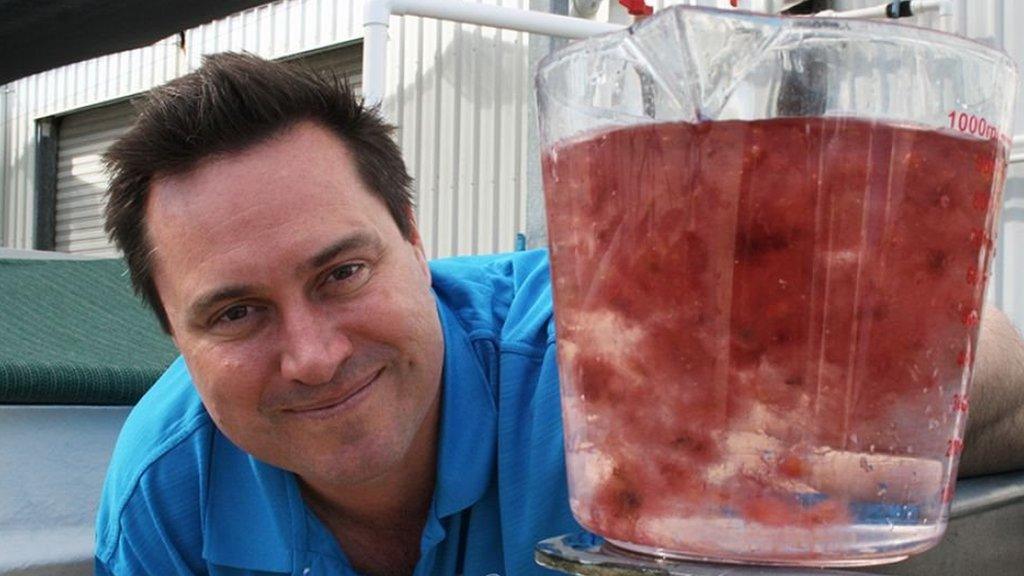Climate change: How cow burps and pink seaweed can affect the planet
- Published
- comments

Associate Professor Nicholas Paul thinks pink seaweed could have a huge impact on climate change
Farmers in Australia have been feeding cows pink seaweed to help combat climate change.
A study in 2014 by Australia's national science agency, CSIRO, found that by adding the pink seaweed 'Asparagopsis' to a cow's food they could reduce the amount of methane gas produced when cow's burp and fart by a whopping 99%!
Methane is one of the gasses that has a big impact on climate change and cows, sheep and goats are thought to pump out 14% of all the gasses than can affect global warming.
The special pink seaweed grows in Queensland in Australia, and now scientists want to set up special farms to make more of it.
Associate Professor Nicholas Paul from the University of the Sunshine Coast said that if enough of the algae was grown it could cut greenhouse gas emissions in Australia by 10 per cent!
He said if we can grow enough to feed it "to all of the cows and the sheep and the goats around the world, then it's going to have a huge impact on the climate."
How does it work?
It's all caused by a chemical reaction in cow's stomachs
It's all to do with chemistry!
Cows have pretty complicated stomachs which are split into four parts.
The microbes that live in the rumen, the first part, are the ones that cause the problems.
When cows eat grass the microbes in the rumen break down and ferment it making methane gas as a by-product - This process is called 'enteric fermentation'.
The cow then burps, or farts the methane gas out.
Pardon moo! Cow's produce A LOT of methane gas
Methane gas is a major cause of global warming.
It acts like a blanket and trapping hot air in the atmosphere and raising the Earth's temperature.
The pink seaweed contains certain chemicals which help to massively reduce the process of enteric fermentation.
How big a problem are cows?
Farm animals all over the world are contributing towards climate change
Research varies, but cows, sheep and goats are thought to be responsible for up to 14% of all greenhouse emissions.
One dairy cow can give off enough methane gas in a single day to fill up to 500 empty litre bottles of pop, which is really bad for the environment.
Around the world, farm animals are responsible for burping and farting the methane equivalent of 3.1 gigatonnes of carbon dioxide into the atmosphere annually.
Scientists are hoping that pink seaweed could be the solution to reducing the world's methane production from farm animals.
- Published31 March 2016
- Published4 January 2017
- Published30 March 2015
